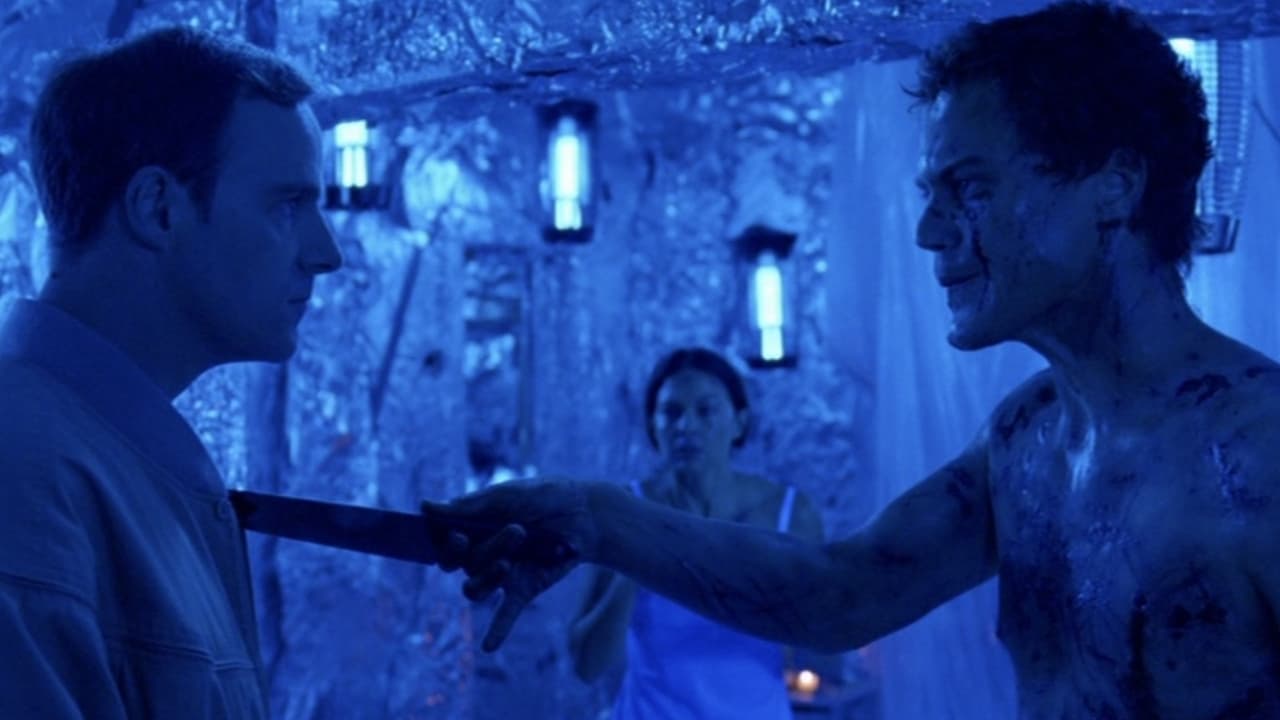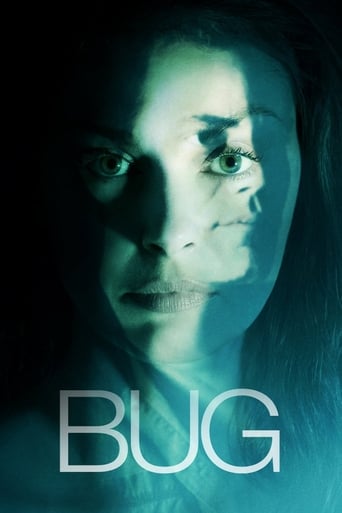

Sadly Over-hyped
... View MorePlot so thin, it passes unnoticed.
... View MoreDon't listen to the negative reviews
... View MoreThe story, direction, characters, and writing/dialogue is akin to taking a tranquilizer shot to the neck, but everything else was so well done.
... View MoreBoring is an understatement. Don't waste your time. I think I lost brain cells watching this movie. It was absolutely terrible!!!
... View MoreThings haven't been exactly peachy for director William Friedkin ever since To Live and Die in L.A. You wouldn't be remiss to expect great things from the guy that directed Sorcerer, The Exorcist and The French Connection - exceptional thrillers all. But alas no, the gods of the late eighties and nineties instead sought fit to deliver upon us a series of lame Friedkin flicks about things like: an adulterous wife (plus a car chase!), a man eating Ent, Tommy Lee Jones practising knife Kung – Fu in the ancient arboreal realm of Oregon and, not to be forgotten, another sterling foray into acting by one Shaquille O'Neill.But something changed in the mid-aughts, and it almost seemed like the director took a more critical look at the previous two movies he had directed at this point in his career and decided to make something within the same ballpark thematically, but direct and streamlined. Enter Bug – an intimate, claustrophobic thriller that just might be one of Bill Friedkin's stronger movies. Bug is the story of Agnes White (played magnificently by Ashley Judd) , a woman whose life seems to be in a state of stasis. Agnes lives in a motel quite literally in the middle of nowhere, and spends her days working as a waitress in her friend R.C.'s run-down bar. But when the sun sets, things go bump in the night, and she is plagued by constant anonymous phone calls from mute callers. A sordid past is implied in these calls, and our protagonist attributes these calls to her violent former husband Jerry. Paranoia seeps in, and Agnes seeks out solace in excessive wine and drug-use, as well as a "friends with benefits"- type relationship with R.C. One night, a party in Agnes' room is joined by a tall, dark and handsome weirdo named Peter (Michael Shannon in one of his best movie roles) and the story sets off from here. Agnes and Peter enter an awkward, but heartfelt relationship as both of their pasts begin to intersect in increasingly manic ways. At its core, Bug is a chamber drama about two people and how their personalities seep into one another in an attempt to heal their own emotional trauma. We slowly become aware of the turmoil that torments Agnes - a crippling tragedy tinged with guilt sits at the very core of her being, alongside the very tangible threat of an angry, fresh out of jail husband. In contrast, Peter is aloof, almost dazed, and at first he provides a degree of comfort to Agnes. Things slowly start spiralling out of control after the two have sex, as Peter starts seeing invisible insects crawling inside the motel room.The motif of the insect and infection is interesting, as it becomes a dramatic cornerstone. In simplified terms, the movie presents the idea that relationships between people in extreme emotional and mental states have an element of absorption (or infection, if you will) wherein ideas and norms from one person are internalised wholesale by the other one. This creates something of an endless chain of small ideas propagating from one host to the next in an endless loop. This is interesting from both a personal and an ideological level, as it seems to indicate how certain belief systems like conspiracy theories, and cult-like religious beliefs can be accepted by intelligent people. Agnes is a prime example of that, - losing her son has made her vulnerable to an almost pliable degree. Peter, the only person who offers her comfort and empathy, becomes a corrective force in her life. The side effect is that she internalises his worldviews as her own, as they present a modicum of escape as well as a way of externalising the reasons for her own grief. The movie presents this as a human way of dealing with grief, a form of self-defence mechanism that is dependent on the presence of other people.So, when it comes to its core story-line, the movie is relatively successful. Structurally, the first act is solid where you get a satisfying introduction with a core mystery with a well-defined emotional centre. The second act plays with the viewer by making them question things about the characters, and the infection angle remains intriguing throughout. It's a shame though, that it ends on a less than interesting note. But larger blemishes appear around the third act, as the movie takes a number of dramatic shortcuts that are largely unsatisfying or just plain lazy. The escalation towards the finale seems clumsy – a poorly explained and contextualised murder is topped off with a long-winded series of monologues where the characters narrating their own demise.The acting is stellar, Judd delivers a layered character that goes through a cavalcade of emotions through the movie but is kept together by a proud but very vulnerable frame. Towards the end, the character shifts into overdrive, and Judd delivers an almost hysterical sprint through every single human emotion, from elation to catatonia and back all within the span of few minutes. She sells Agnes' hesitant attraction towards Shannon's character fairly well, and deftly shows of the different emotional beats at the appropriate moment. Overall, the performance is almost a textbook showcase of a dizzying number of emotional situations through which Judd swiftly and effortlessly navigates. Shannon is also extremely impressive, honing in on a more consistent acting style. There are a few moments of whiplash- inducing intensity that ends up feeling a tad overwrought, but that seems more like a necessity borne of the script rather than the actor's fault. He successfully generates empathy, without ever presenting the character as psychotic or emotionally oblique.Bug is a solid piece of atmospheric film-making, with some genuine craft on display. The ending is hokey, but overall the movie absolutely will get under your skin.
... View MoreDear William Friedkin,I really enjoyed your last two feature films. I am so glad you decided to make movies about rednecks. I am sick of movies about regular people.Bug (which preceded Killer Joe) is another satisfying effort from you based in the redneck milieu. The film did enter the horror movie territory in the second half. And the play like quality sort of ruined the second half. The first half with the whole hard drinking drug abusing redneck life style was thoroughly entertaining.I do not normally enjoy films with play like qualities. But Bug was an interesting chronicle of what happens when two spiritually wounded people get together. I thought you were having a go at religious fanaticism.Ashley Judd was going great guns in the period the film came out. This must be one of her best performances. I am not a big fan of Michael Shannon, but he was terrific in some of the scenes. Harry Connick and Lynn Collins were remarkable in their supporting roles.Best Regards, Pimpin.(6/10)
... View MoreSpoiler alert.Most people believe the two main characters (Agnes and Jerry) end up being totally delusional and schizophrenic. Still others think the ending is open-ended, with them totally going nuts and them dealing with reality both possible.But certain details reveal that in the story the conspiracy is real and that Agnes and Jerry sacrifice themselves in order to save the humanity. It's a sci-fi story hidden beneath a psychological thriller veil. Most of the reviews only scratch on the surface. I have yet to see anyone pointing out these subtly revealing details: For one, there's that helicopter noise. Throughout the story, it can be construed as one of their delusions. However in the end after they kill themselves and credit already rolls up, here comes again the chopper noise. It can no longer be explained by delusions since both main characters are now dead. It's an extremely subtle way to suggest that the helicopter is real, which then in turn suggests that the conspiracy is real too.For two, there's that doctor/consultant. The telling moment is when Peter points a huge knife at his chest. Boy that knife is huge. And Peter by then looks crazy as hell. But the doctor doesn't even flinch! Is he for real? All he is trying to do is to give Peter a shot. So what you have is someone totally focused on his mission, without any consideration of his own safety. That's like a what? A suicide bomber, no less. To a certain degree that doctor is like Tim McVeigh or John Doe #2 mentioned before. So there you have it, another mind-controlled subject, one of those Peter described in his conspiracy theory.For three, the bugs are never shown in the film. It doesn't mean they don't exist. Both Peter and Agnes see them under the microscope. R.C. and Jerry look through the microscope but deny that they see the bugs. It's possible that they don't see anything. But it's equally possible that, as Peter and Agnes figure out later, they are both in on the conspiracy.All in all this is an extremely well made story and film. It's so cerebral that not a whole lot of people can fully appreciate it. It's also one of very few movies that touch on some of the major conspiracy theories that are fascinating subjects in and of themselves.
... View More